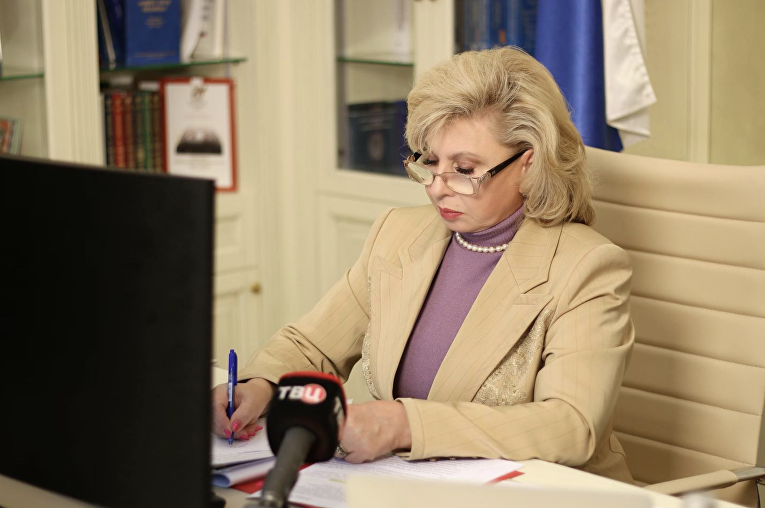MOSCOW, July 30 (RAPSI) — Russian Ombudsman Tatiana Moskalkova has called international human rights organizations to take measures to prevent further discrimination of the Russian-speaking population in Ukraine.
For her part, the Russian Human Rights Commissioner said, she called on her colleagues - heads of international human rights organizations and integration associations of ombudsmen - to pay special attention to the deteriorating situation of the Russian-speaking population in Ukraine and to take all possible measures to prevent further discrimination and linguistic segregation, stressing that over the past several years, there had been registered persistent violation of the rights of the Russian-speaking population on the territory of modern Ukraine.
As the Ombudsman noted, refusing to recognize and in every possible way rejecting their historical, cultural and ethnic roots, Ukrainian authorities have discriminated more than half of their country’s residents.
In her annual reports, at meetings with the leading figures of international human rights organizations, she has repeatedly raised these issues, and with regret she has to admit that these segregation trends have only intensified, Moskalkova stressed.
The Ombudsman reminded that the law of Ukraine on ensuring the functioning of the Ukrainian language as the state language serves as yet another proof of the policy of total Ukrainianization of the population.
Moskalkova complained about the restriction of television and radio broadcasting, the introduction of a ban on teaching in Russian, and the massive closure of Russian-language channels saying that those were just a few of the restrictions introduced by the aforesaid law.
As the Ombudsman said, despite the fact that such massive violations of the rights of the Russian-speaking population by the Ukrainian authorities are recorded and criticized by international organizations, including the UN High Commissioner for Human Rights, the UN Committee on Economic, Social and Cultural Rights, the Venice Commission of the Council of Europe, the norms of the language law continue to be extended to more and more spheres of public life in Ukraine.
From July 16, 2021, in accordance with the provisions of the law, the cultural rights of the Russian-speaking population are radically limited. The Ukrainian language is becoming the only one possible to be used in the distribution and demonstration of films, tourist and excursion services, organization of art exhibitions, cultural and entertainment events, she said.
However, Moskalkova stressed, at the same time the use of the official languages of the European Union is allowed in all areas. This is another innovation that aggravates the position of the Russian language in Ukraine.
Russians in Ukraine cannot be considered an indigenous people, and, therefore, have no right to respect for their identity, to protection of their linguistic identity, and creation of their own educational institutions with instruction in their native language.
Thus, the Russian language is subjected to double discrimination, on the one hand - in relation to the languages of the peoples of Ukraine newly defined as “ingenious” by law, and on the other - the languages of national minorities, which are the official languages of the EU, Moskalkova complained.
In her opinion, such attempts by the Ukrainian authorities to spread knowledge about the Ukrainian language and its role in the development of European culture completely contradict to the norms of international law and significantly impede the full realization of the rights of Russian-speaking residents, who represent more than half of the population of Ukraine.
In order to draw attention of the world community to this problem, on July 22, 2021, the Russian Federation for the first time applied to the European Court of Human Rights with an interstate complaint against Ukrainian authorities.



